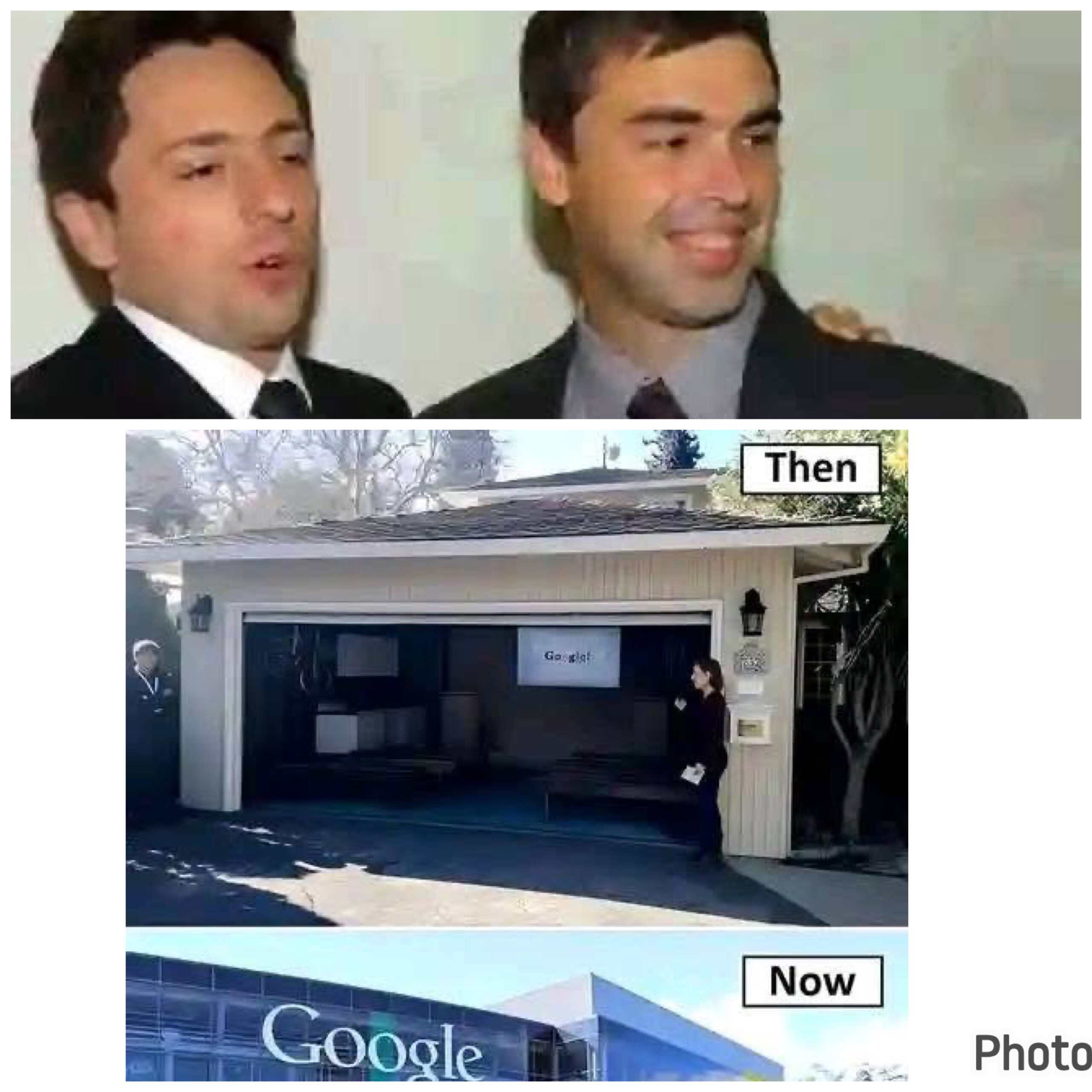Tech
ByteDance-owned TikTok slashes hundreds of jobs in shift towards AI content moderation
Published
6 months agoon
By
Ekwutos BlogShort-video platform TikTok currently employs a mix of automated detection and human moderators to review content posted on the site
ByteDance-owned social-media platform TikTok is laying off hundreds of employees from its global workforce, including a large number of staff in Malaysia, the company said on Friday, as it shifts focus towards a greater use of artificial intelligencein content moderation.
Two sources familiar with the matter earlier told Reuters that more than 700 jobs were slashed in Malaysia. TikTok later clarified that less than 500 employees in the country were affected.
The employees, most of whom were involved in the firm’s content-moderation operations, were informed of their dismissal by email late on Wednesday, according to the sources, who requested anonymity because they were not authorised to speak to media.
Do you have questions about the biggest topics and trends from around the world? Get the answers with SCMP Knowledge, our new platform of curated content with explainers, FAQs, analyses and infographics brought to you by our award-winning team.
In response to queries, TikTok confirmed the lay-offs and said that several hundred employees were expected to be affected globally, as part of a wider plan to improve its moderation operations.
TikTok employs a mix of automated detection and human moderators to review content posted on the site.
Beijing-based ByteDance has over 110,000 employees in more than 200 cities globally, according to the company’s website.
The world’s most valuable start-up – with a valuation close to US$230 billion, according to a report last month by The Information – is also planning more retrenchments next month, as the firm looks to consolidate some of its regional operations, one of the sources said.
“We’re making these changes as part of our ongoing efforts to further strengthen our global operating model for content moderation,” a TikTok representative said in a statement.
The company expects to invest US$2 billion globally this year in various trust and safety initiatives and will continue to improve efficiency, with 80 per cent of guidelines-violating content now removed by automated technologies, the representative said.

Several hundred TikTok employees globally are expected to be affected by the short-video platform’s latest round of job cuts. Photo: Shutterstock
The lay-offs were first reported by business portal The Malaysian Reserve on Thursday.
The job cuts occur as global technology firms face greater regulatory pressure in Malaysia, where the government has asked social media operators to apply for an operating licence by January in line with efforts to combat cybersecurity offences.
Malaysia reported a sharp increase in harmful social media content earlier this year and called on firms, including TikTok, to step up monitoring on their platforms.
More Articles from SCMP
China’s stimulus measures just first step on economic reform journey
Kazakhstan sees more ‘close coordination’ with China in platforms like UN, SCO
China’s Mexico investment may dwarf official figures, with estimated US$13 billion in play
China’s C919 jet, US presidential election: SCMP’s 7 highlights of the week
This article originally appeared on the South China Morning Post (www.scmp.com), the leading news media reporting on China and Asia.
You may like


Wike vs Fubara: I’m impartial in Rivers political crisis – Ibas


A lot of people don’t know this but do you know that all your internet connections and services are powered by Glo, not all but majority is powered by an under see cable called GLO1 THAT’S owned by Glo1.


P0LICE IS YOUR FRIEND is not just a statement, but a Fact
If you are afraid of insecurity in your village to the extent you cannot live or operate from there, then you are not qualified to answer a Dibia, Ezenwanyi, Nze, Obi, Ezeani, Igwe.- Nze Tobe Osigwe


Abuja mother dumps baby by roadside


Trading platform users deny crash claim
Tech
A lot of people don’t know this but do you know that all your internet connections and services are powered by Glo, not all but majority is powered by an under see cable called GLO1 THAT’S owned by Glo1.
Published
7 minutes agoon
April 13, 2025By
Ekwutos Blog
Now because they make more money from this than selling as retailers that’s why they don’t care about their ISP SERVICE in retail quantities.
It’s like a bakery, they are most focused on selling to bulk buyers than single house hold user’s.
So you MTN, GLO AND ALL THAT are mostly connected to GLO1 even banks and may other platforms.
Ok let me break everything down.
1. Glo’s GLO-1 Cable:
GLO-1 is a private submarine cable owned by Globacom. It stretches from Nigeria to the UK and connects several West African countries. It was Nigeria’s first privately owned international submarine cable, launched around 2010.
Key Facts about GLO-1:
• Length: Over 10,000 km.
• Capacity: Designed for up to 2.5 Tbps.
• Landfall points: UK, Portugal, Senegal, Côte d’Ivoire, Ghana, and Nigeria.
• Purpose: Meant to reduce dependence on SAT-3 and provide high-speed internet capacity.
⸻
2. Why Glo May Not Focus Heavily on Retail ISP Services:
Glo essentially plays two roles:
• Infrastructure owner (wholesaler)
• Internet provider (retailer)
The wholesaling of the GLO-1 cable (and other bandwidth infrastructure) can be significantly more profitable and less stressful than managing millions of data subscribers in Nigeria with high expectations and poor last-mile infrastructure.
So yes:
Glo likely focuses more on selling bulk bandwidth to big clients than pleasing end users.
⸻
3. Who Are Glo’s GLO-1 Subscribers (Wholesale Clients)?
These can include:
• Telecom companies: ISPs, other mobile network operators.
• Banks and financial institutions.
• Tech companies and data centers.
• Government institutions.
• Educational institutions (for broadband research/academic access).
• CDNs and enterprise clients (e.g., Netflix, Google, Meta might use transit partners who tap into GLO-1).
4. How Many Submarine Cables Does Glo Own?
• Only One: GLO-1 is the only submarine cable Globacom directly owns.
• However, Glo might lease or partner to access others like:
• SAT-3 (older system, via NITEL/NTEL)
• ACE, WACS (via partnerships or regional consortiums)
So , Glo’s focus on being a wholesale bandwidth provider through GLO-1 might be one reason why their retail ISP service suffers in terms of customer satisfaction. They’re likely making more consistent revenue selling to institutions, ISPs, and data centers than from individual subscribers who demand high-quality, stable data service — which requires serious investment in towers, backhaul, and customer service
Copyright of Isaac Rocks Adeiza (Original Owner must be tagged to any Redistributions of content)
Content can’t not be redistributed for profit purposes.

Some users of CBEX, a digital asset trading platform, have dismissed trending reports that it has crashed.
This comes amid concerns over the operations of the platform, with some users warning that it showed signs of being a Ponzi scheme.
Our correspondent gathered that there are growing concerns about the platform’s stability, with many users fearing that their money is now stuck.
While some warned that CBEX could be a potential Ponzi scheme on the brink of collapse, others continued to defend the platform, insisting it remained a legitimate operation.
An X user, Viktor Benson (@viktorbensonyt), claimed that some users had been logged out of their accounts and might not be able to retrieve their money.
The post read, “You need to go to the platform to download the app and you tell yourself that platform is legit. Now you have put money and the website has crashed, and you can’t withdraw. Although people are saying that it is a temporary issue and I like being optimistic that by Monday one will be able to withdraw. Let us wait till Monday; hopefully, you can withdraw your money.”
Meanwhile, another X user, @BlessedAjoke, countered the crash claims, saying, “CBEX is still working perfectly, just that you can’t withdraw until the 15th of April. You people should stop spreading fake news. Stop giving people heart attacks nah.”
Another user, @0kparam, criticised those celebrating the platform’s possible collapse.
“Y’all are acting like CBEX crashing makes you financial sages. Nah, it just makes you bitter haters… Ponzi, yen yen yen. Just stfu, coward,” he wrote.
Speaking to Sunday Ekwutos, three other users confirmed that the platform was still functioning, although withdrawals were currently not possible due to the platform’s rules and regulations.
One of the users, Sodiq Dayo, said he was still actively trading on the platform and noted that the issue with withdrawals would be resolved by Tuesday.
“The platform is still working. The reason why the withdrawal is not functioning at the moment is because of some rules and regulations of the platform, and this will be resolved by Tuesday,” he said.
Another CBEX user, Alli Lanre, stated that as long as users could access the platform, there was no issue.
He advised users not to worry or develop hypertension over rumours of the platform’s crash.
Gbenga Adeboye, another user, expressed both optimism and pessimism, saying, “Basically, no one can withdraw unless the trading volume is completed. However, they promised the whole issue would be over by the 15th.”
Reacting to the issue, a financial expert, Aliyu Ilias, noted a regulatory gap in monitoring online financial businesses in Nigeria.
He stressed the need for continuous oversight from the National Information Technology Development Agency and the Central Bank of Nigeria to discourage unclear financial investments, whether Ponzi schemes or otherwise.
Ilias said, “Nigerians should be cautious of quick-income platforms that could crash at any point in time. The government has a responsibility to fish out the sponsors of these Ponzi platforms, even if they are operating in the cloud.”
A cryptocurrency expert, Kayode Olagunju, also emphasised that Ponzi schemes like CBEX should not be encouraged in the country.
He added that it was shameful that Nigerians continue to fall victim to scams despite the education and warnings provided by crypto experts.
“It is a slap in the face of intellectuals who have written so many articles and guides to help people with zero knowledge about cryptocurrencies. Crypto is vast; it is in the same class as the stock market,” he said.
Checks by our correspondent on the official website of the trading platform revealed that it remained accessible.
However, messages sent by Sunday Ekwutos to the email address listed on the CBEX website were undeliverable at the time of filing this report.
Tech
GOOGLE’S $2 TRILLION STORY: FROM HUMBLE BEGINNINGS TO GLOBAL DOMINATION
Published
7 hours agoon
April 13, 2025By
Ekwutos Blog
Imagine two young men, Larry Page and Sergey Brin, sitting in a Stanford dorm room, fueled by determination and a vision to make the internet more useful. It’s 1996, and they’re about to change the world forever. But, nobody believes in them… yet.
40 rejections , they’re still standing. Then, a surprise investor, Andy Bechtolsheim, throws them a lifeline – a $100,000 check. No strings attached.
Fast forward to 2000, Google launches AdWords, and the game changes. By 2004, Google’s IPO raises $1.67 billion, leaving skeptics stunned. Today, Google’s valuation is a staggering $2 trillion, with:
– Revenue hitting $350 billion (up 14% from 2023)
– Net income of $100.1 billion (35.7% YoY jump)
– 90% search dominance
– 71% smartphone rule via Android
– YouTube’s 2.7 billion addicts
– 75% of cash flow still coming from ads
But, here’s the thing: Google’s success isn’t just about technology; it’s about understanding human behavior. They’ve mastered the art of giving us what we want – instant answers, convenience, and connection.
So, what’s the takeaway? Stubbornness, creativity, and a willingness to take risks can lead to game-changing innovations.


The next trillion-dollar idea? Probably in some kid’s half finished GitHub repo.
The question is, will you recognize it?

Wike vs Fubara: I’m impartial in Rivers political crisis – Ibas

A lot of people don’t know this but do you know that all your internet connections and services are powered by Glo, not all but majority is powered by an under see cable called GLO1 THAT’S owned by Glo1.

P0LICE IS YOUR FRIEND is not just a statement, but a Fact
Trending

 Trending6 months ago
Trending6 months agoNYA demands release of ‘abducted’ Imo chairman, preaches good governance
- Business6 months ago
US court acquits Air Peace boss, slams Mayfield $4000 fine

 Politics6 months ago
Politics6 months agoMexico’s new president causes concern just weeks before the US elections
- Entertainment6 months ago
Bobrisky transferred from Immigration to FCID, spends night behind bars
- Entertainment6 months ago
Bobrisky falls ill in police custody, rushed to hospital

 Politics6 months ago
Politics6 months agoRussia bans imports of agro-products from Kazakhstan after refusal to join BRICS

 Politics6 months ago
Politics6 months agoPutin invites 20 world leaders
- Politics1 year ago
Nigerian Senate passes Bill seeking the establishment of the South East Development Commission.

